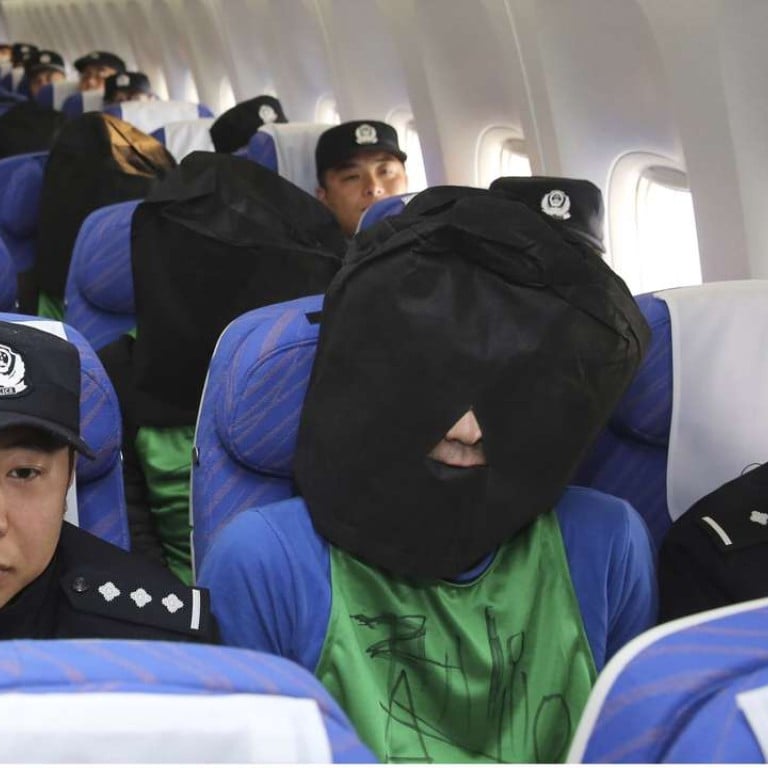
No ulterior motive: Taiwanese extradition case was just badly handled by Beijing
Michal Thim says China’s management of Kenya’s extradition of 45 Taiwanese fraud suspects was probably not intended as a statement on cross-strait ties
Beijing has ‘legal right’ to demand Kenya deport Taiwanese fraud suspects
However, we are looking at a badly managed case rather than a deliberate assault on cross-strait relations. Kenyan authorities gave preference to political contingency over upholding proper procedures. They carried out an extradition poorly disguised as a deportation, which usually does not involve handing deportees over to foreign law enforcement.
With the imagery of hooded detainees surrounded by Chinese police officers on board a plane, it is not surprising that the Taiwanese public and media talk about kidnapping.
Occam’s razor should be applied: the simplest explanation is usually the correct one
Taiwan is trying to occupy a higher moral ground in the eyes of world opinion. However, among the many unpleasant realities the Taiwanese government, legislature and general public need to ponder is why so many Taiwanese are involved in organised crime abroad. Moreover, Taiwan has not been a reliable partner in prosecuting such crimes. As local politicians admitted this week while attempting to craft new laws, Taiwan has routinely been giving accused scammers light sentences, or even releasing them as soon as they arrive.
Beijing naturally argues that the case is purely a matter of seeking justice for wrongdoing on Chinese citizens. It may have a point. This is not an isolated event. Cases where Taiwanese and Chinese citizens have faced charges for phone scams directed at victims in China, Taiwan, and other ethnic Chinese communities are common.
Beijing steps up war of words with Taiwan over freed phone scam suspects deported from Malaysia
Beijing is not sending any message to President-elect Tsai. If it were, what could it be? That if she does not say “One China” then Beijing will keep its Taiwanese gangsters? That is hardly a punishment. And how often does Beijing want to see world media headlines accusing it of kidnapping people abroad? The only victim of such an approach would be Beijing’s efforts to win over already unfavourable public opinion in Taiwan.
Occam’s razor should be applied: the simplest explanation is usually the correct one. The Kenya case is first and foremost a criminal case, and the message China is sending to Taiwan is likely purely judicial: if you don’t prosecute these people, we will.
Michal Thim is a Taiwan analyst at the Prague-based think tank Association for International Affairs

